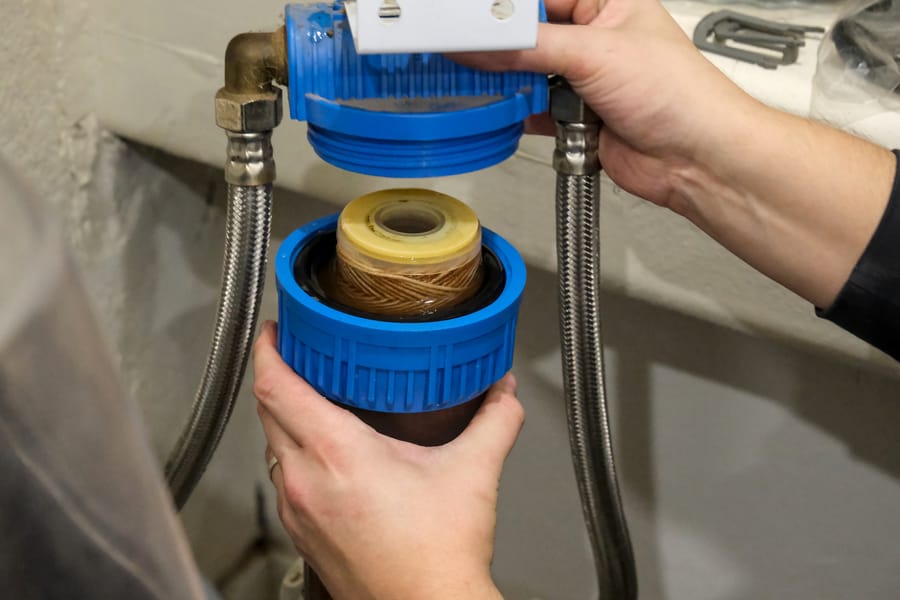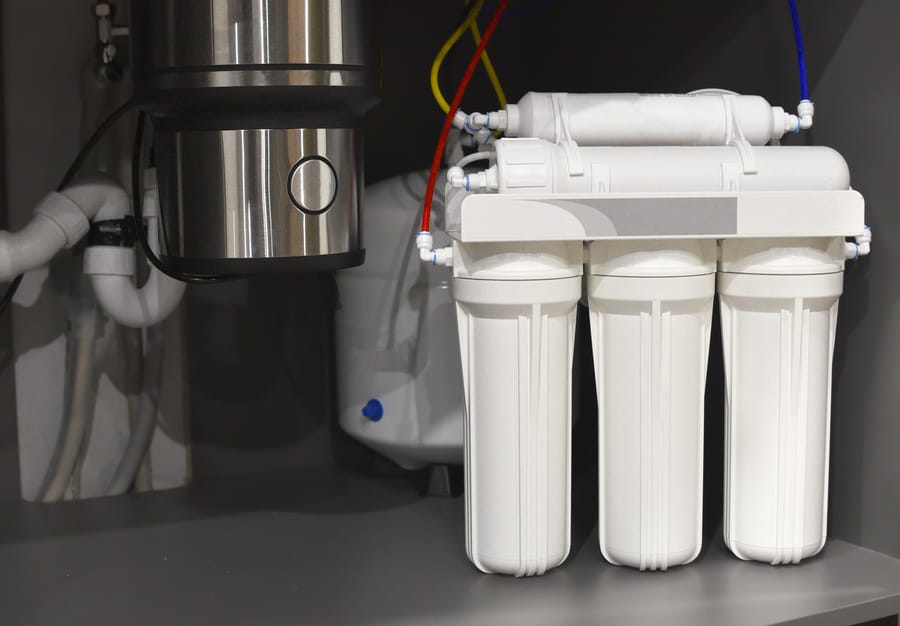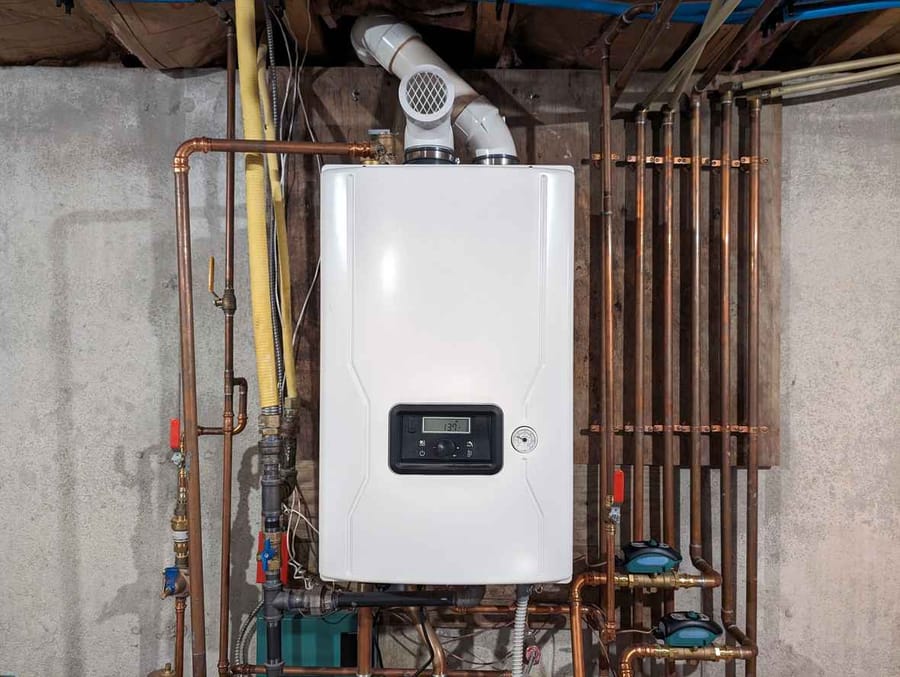Serving the Greater Tampa Bay Region
5 Common Signs Your Water Heater Needs Repair

Whether you’re taking a warm shower, washing dishes, or doing laundry, a reliable water heater is essential for everyday comfort. But like any appliance, your water heater can develop problems over time that affect its performance, efficiency, and safety.
Recognizing early signs of trouble can help you avoid sudden breakdowns and costly replacements. Many homeowners don’t realize something is wrong until they’re stuck with cold water or leaks that cause damage. Understanding the warning signs helps you act quickly and keep your system running smoothly.
This blog outlines the five most common signs that your water heater needs professional attention. By spotting these issues early and scheduling timely repairs, you can extend your system’s lifespan and ensure your home stays comfortable year-round.
Sign #1: Inconsistent or No Hot Water
If your showers suddenly turn cold or your water takes longer to heat up than usual, your water heater may be signaling a problem. Inconsistent or insufficient hot water is one of the most common warning signs that your system needs repair.
Fluctuating Temperatures
If your water alternates between hot and cold, the issue could stem from a failing thermostat, a malfunctioning heating element, or sediment buildup at the bottom of the tank. These problems prevent the unit from heating water evenly.
Complete Loss of Hot Water
When no hot water is produced at all, your system may have a broken heating element or a faulty power source. In gas water heaters, a pilot light or gas control valve problem is often the culprit.
Why Prompt Repair Is Important
Ignoring heating issues forces your system to work harder and less efficiently, which can lead to higher energy costs and further wear on internal components. Having a plumber inspect and service the unit quickly can prevent a full system failure.
Sign #2: Strange Noises Coming from the Tank
If your water heater starts making popping, rumbling, or banging noises, it’s a clear indication that something isn’t right. While it’s normal for a heater to make soft operational sounds, loud or unusual noises often signal a buildup of sediment or mineral deposits inside the tank.
What Causes the Noise
Over time, sediment from hard water settles at the bottom of the tank. When the burner heats the water, trapped air bubbles push through the sediment, creating popping or cracking sounds. This buildup forces your system to work harder to heat water, reducing efficiency and increasing wear.
The Impact on Performance
Sediment not only causes noise but also insulates the heating element, making it less effective. This leads to longer heating times, higher energy bills, and eventual overheating that can damage the tank.
How Maintenance Prevents the Problem
Flushing your water heater once or twice a year removes sediment and keeps the system running quietly and efficiently. Professional maintenance ensures all internal components are cleaned and inspected for damage before serious issues develop.
Sign #3: Water Leaks Around the Unit
If you notice water pooling near the base of your water heater or moisture on the surrounding floor, your system may have a leak. Even a small amount of water can point to a serious problem that requires immediate attention.
Common Sources of Leaks
Leaks can occur from loose connections, faulty valves, or corrosion on the tank itself. In some cases, condensation may appear during colder months, but consistent moisture or puddling almost always means there’s a problem that needs repair.
Why Leaks Should Never Be Ignored
A leaking water heater can cause significant water damage to floors, walls, and nearby structures. If the leak comes from the tank due to rust or internal corrosion, repair might not be possible, and replacement may be necessary to prevent flooding.
Professional Inspection and Repair
A qualified plumber can determine whether the leak is coming from a fitting, pressure relief valve, or the tank itself. Formula Plumbing offers fast, professional repair services to stop the leak, protect your property, and restore your system’s performance.
Sign #4: Rusty or Discolored Water
If you notice brown, reddish, or cloudy water coming from your hot water tap, your water heater could be developing internal corrosion. While a slight tint may occasionally come from municipal work or plumbing repairs in your area, persistent discoloration almost always points to a problem inside your system.
What Causes Rusty or Discolored Water
As your water heater ages, the metal tank can begin to corrode from the inside out. The protective anode rod that prevents rusting eventually wears down, allowing iron and other minerals to mix into the water. This not only affects the appearance but can also leave an unpleasant metallic taste.
Why It’s a Sign of Trouble
Corrosion is a serious issue because it weakens the tank walls and can eventually cause leaks. If the problem is caught early, replacing the anode rod may solve it, but if rust has spread, the tank may need replacement to prevent failure.
When to Call for Service
If rusty or cloudy water appears only when using hot water, the issue is likely within the water heater itself. A licensed plumber from Formula Plumbing can inspect your tank, replace worn components, and restore clean, clear water to your home.
Sign #5: Reduced Efficiency or High Energy Bills
If your energy bills are creeping up but your household’s water use hasn’t changed, your water heater may no longer be operating efficiently. As sediment builds up and components wear out, your system must work harder to heat water, wasting energy in the process.
How Sediment Affects Efficiency
When sediment collects at the bottom of the tank, it forms a barrier between the heating element and the water. This forces the system to run longer to achieve the desired temperature, using more electricity or gas and raising your utility bills.
Aging Components and Poor Insulation
Older water heaters often lose efficiency because of worn parts or deteriorating insulation. Heating elements may struggle to reach consistent temperatures, and older tanks lose heat more quickly than newer, well-insulated models.
When to Schedule a Tune-Up or Repair
Professional maintenance can help restore efficiency by flushing the tank, testing heating elements, and replacing faulty parts. Formula Plumbing provides expert water heater inspections and tune-ups to ensure your system runs at peak performance all year long.
Restore Comfort and Efficiency with Expert Water Heater Repair
Your water heater plays a vital role in daily comfort, and catching small problems early can prevent major damage and expensive replacements later on. Whether you’re noticing inconsistent hot water, unusual noises, leaks, or rising energy costs, these are all warning signs that your system needs professional attention.
Prompt repairs not only restore performance but also improve efficiency, extend the life of your system, and keep your energy bills under control. Regular inspections and maintenance are the best ways to ensure reliable hot water and avoid unexpected breakdowns.
If you suspect your water heater needs service, contact Formula Plumbing. We provide fast, reliable repairs and maintenance to keep your system running safely and efficiently.





